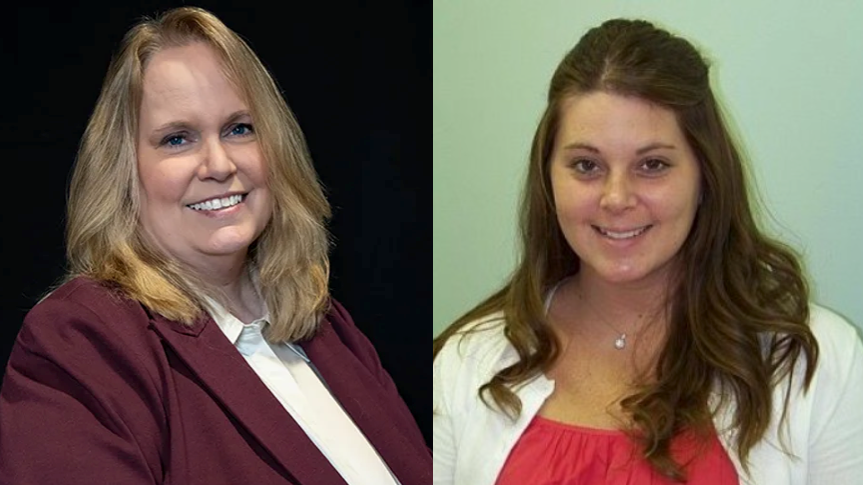Educating the next generation of business leaders
(Or how to find a cool volunteer gig and travel America - or perhaps the world!)

Are you familiar with AACSB? If not, you should get to know them because there’s a potentially rewarding volunteer opportunity available that combines “doing good” and “travel.”
AACSB International is the Association for the Advancement of Collegiate Schools of Business. It’s the leading worldwide accreditor of business schools – both in the U.S. and internationally -- with more than 1,000 accredited.
Around here, Bellarmine, EKU, KSU, Morehead, Murray, NKY, UK, UofL, WKU, and IU Southeast are all AACSB accredited and three – WKU, UK and U of L – have “supplemental accounting accreditation” like 200 other business schools across the globe.
AACSB’s goal is to connect educators, students and business to “create the next generation of great leaders” – providing networking opportunities to help the schools continuously improve while inspiring innovation and quality.
Applying the standards
As a long-time educator, I‘d argue that AACSB’s most important effect is improving the quality of education by creating high standards to meet. The AACSB focuses on four critical areas:
1. Strategic Management and Innovation
- Does the school have a strategic plan that includes stakeholder input?
- Does it have sufficient resources to carry out that plan?
- Is there sufficient faculty and supporting staff to teach and develop students?
2. Learner Success
- Is the school curriculum current and does it create the path for students to succeed after graduation?
- Does the school measure student learning, and is data used to guide changes to curriculum and program features – i.e. “continuous improvement.”
- Are there appropriate policies for admission, student progression toward a degree and support for career development, plus a measurement of post-graduation success
3. Teaching Effectiveness and Impact
- Does the school have a system of assessing the faculty’s teaching effectiveness?
- Does it provide sufficient support to help the faculty teach new and emerging topics (such as data analytics, and AI)?
- Is the school having a demonstrated teaching impact? This can be measured through the success of its graduates, employer satisfaction with programs, and other recognition of accomplishments.
4. Thought Leadership, Engagement and Societal Impact
- Impact of scholarship – does the faculty produce high-quality, impactful intellectual contributions over time?
- Does the school engage with the business community and have societal impact, measured through a number of special metrics?
That’s the Cliff Notes version. These standards are outlined in a 50-page document and are accompanied by equally long interpretive guidance.
Sending in the review teams
For accredited schools, a “Continuous Improvement Review” visit is conducted every five years. It’s preceded by a school report that summarizes how well they have implemented the standards – including accomplishments and plans for future improvements.
The Peer Review Team (PRT) – three business school deans from similar schools – get this report. The PRT evaluates the report by visiting the school to meet with faculty, students, advisory boards, and others as part of the assessment process.
It’s a fast paced visit: Arrive on Sunday, visit on Monday, write a report/rough draft and present it (usually to the president and provost) on Tuesday.
The PRT may recommend extending accreditation. Or if important issues are identified, a follow up might be scheduled for the next year.
Volunteering as an outsider for the team
Adding a practitioner to accounting accreditation teams is relatively new. These volunteers bring a perspective to the accreditation team that is welcome … and needed.
AACSB has been able to attract volunteers from public accounting (both large and small firms). But volunteers from industry are needed.
It’s a cool gig.
Over the past several years, I have visited about 25 schools. My most interesting visit is coming up in 2024, my first and only international visit. I’ll be going to Al Ain, United Arab Emirates, to visit the state supported university.
While there’s no compensation, all your trip expenses are covered, including travel to from the school, accommodations during the visit, all meals, airport parking, etc.
Since the school is likely trying to impress you, the hotel will generally be very nice. On one of my visits, the Hampton Inn was the best local hotel (no offense -- it was very comfortable, but it wasn’t the Ritz Carlton).
Consider either volunteering yourself, or perhaps encouraging someone who works for you or with you.
The benefit to you is getting an inside view of how the next generation of business leaders are being developed. And through your advice, you can have an impact on the school’s programs, helping that school do their best. I assure you; it is a rewarding experience. You will also develop a better understanding of the complexities of an accounting degree program and the effort that goes in to training the next generation of leaders.
To be accepted as a volunteer you must complete training (mostly online and not terribly time consuming), have at least 10 years of professional experience, strong written and oral communication skills, and strong emotional intelligence.
A volunteer should also have experience on a university accounting advisory board, university teaching experience, or service on firm peer review teams. Volunteers from industry must have a strong knowledge of current technology, and the ability to assess a school’s incorporation of that technology in the curriculum. And of course, the volunteer must be able to assess the school’s accounting curriculum to determine if it is properly preparing graduates for the workforce.
Typically, you will be assigned to a PRT several months in advance. You will likely be assigned to only one visit each year. Visits are scheduled in the fall or spring, not summer.
The Sunday-Tuesday visit is the only time you must commit to specific days.
I hope you will consider pursuing this unique volunteer opportunity. If you are interested, get in touch with me (william.stout@louisville.edu) and I will connect you with someone at AACSB who can provide additional information and get you started in the process.
Bill Stout is on the board of directors of FEI Louisville and retired as associate professor from the University of Louisville's College of Business.
More FEI Louisville News












